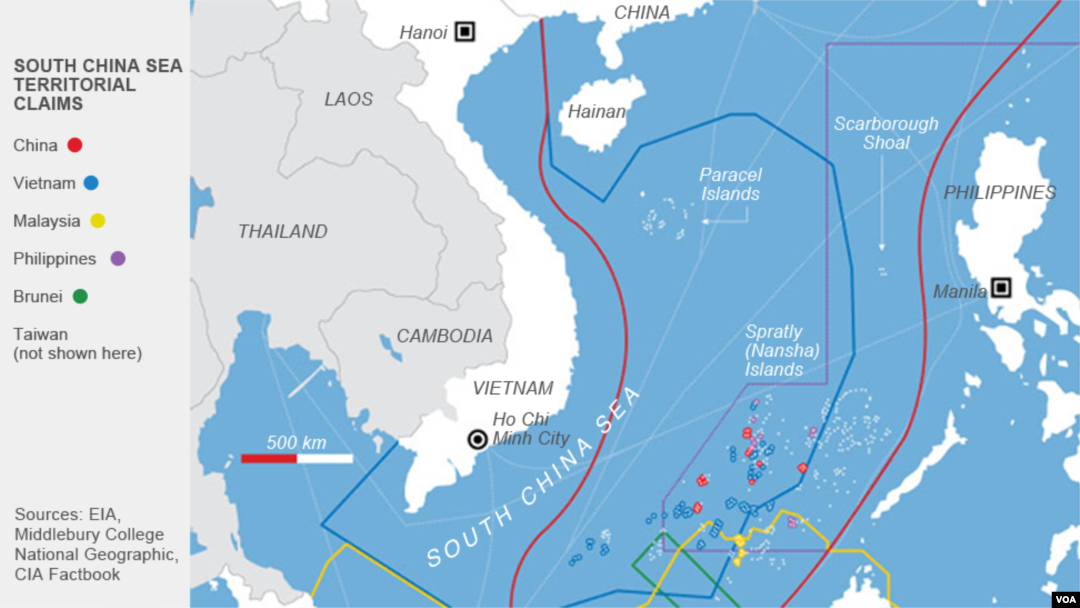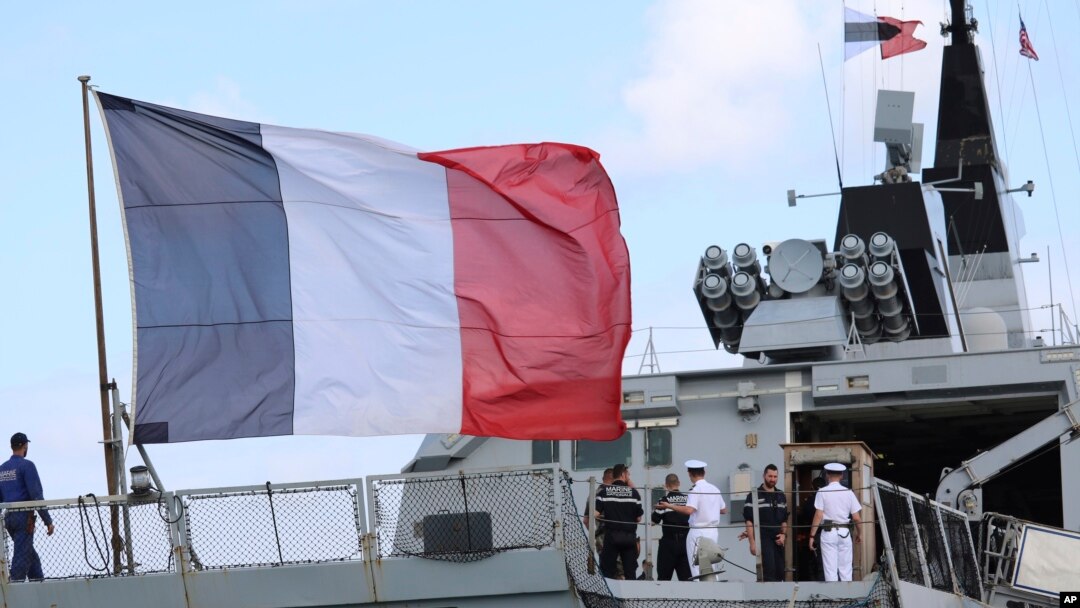Troops from the U.S., Japan and two European nations are gathering on remote U.S. islands in the Pacific for drills they say will show support for the free passage of vessels in international waters amid fears China could restrict movement in the South China Sea.
The drills around Guam and Tinian may also send a message to North Korea about the U.S. commitment to the region and the breadth of its allies. Tensions between the U.S. and North Korea spiked last month after Pyongyang launched a ballistic missile and the U.S. sent an aircraft carrier strike group to the region.
France, UK take lead
The drills, which are led by France and include the United Kingdom, will practice amphibious landings, delivering forces by helicopter and urban patrols.
Two ships from France are participating, both of which are in the middle of a four-month deployment to the Indian and Pacific oceans. Joining are U.K. helicopters and 70 U.K. troops deployed with the French amphibious assault ship FS Mistral. Parts of the exercise will feature British helicopters taking U.S. Marines ashore from a French ship.
“The message we want to send is that we’re always ready to train and we’re always ready for the next crisis and humanitarian disaster wherever that may be,” said U.S. Marine Corps Lt. Col Kemper Jones, the commander of the 3rd Battalion, 8th Marine Regiment. About 100 Marines from Jones’ unit will be part of the drills slated for this weekend and next week.

South China Sea Territorial Claims
South China Sea
China claims virtually the entire South China Sea and has aggressively tried to fortify its foothold in recent years by transforming seven mostly submerged reefs into island outposts, some with runways and radars and — more recently — weapons systems. This has prompted criticism from other nations, that also claim the atolls, and from the United States, which insists on freedom of navigation in international waters.
Critics fear China’s actions could restrict movement in a key waterway for world trade and rich fishing grounds.
China says its island construction is mainly for civilian purposes, particularly to increase safety for ships. It has said it won’t interfere with freedom of navigation or overflight, although questions remain on whether that includes military ships and aircraft.
Mira Rapp-Hooper of the Center for New American Security, a Washington think tank, said the exercises will send a strong message in support of a “rules-based order in Asia” at a time when China’s actions have raised questions about this.
“A reminder in this exercise is that lots of other countries besides the United States have an interest in that international order,” said Rapp-Hooper, who is a senior fellow with the center’s Asia-Pacific Security Program.
FS Mistral, a French amphibious assault ship, pulls into port at Naval Base Guam, May 11, 2017, near Hagatna, Guam. Troops from the United States, Japan, France and the United Kingdom are gathering for drills they say will show support for the free passage in the South China Sea.
Growing European interest
The exercises come amid modestly growing European interest in the South China Sea, said David Santoro, a senior fellow for nuclear policy at Pacific Forum CSIS, a Honolulu think tank.
“What I’m hearing from the French and to some degree the British, is an increased interest in what’s going on in Asia and how they can help,” Santoro said. As for North Korea, Santoro said Pyongyang would likely be watching but he didn’t think the exercises were intended to send any signal to the country.
Japan, which is sending 50 soldiers and 160 sailors and landing craft, has been investing in amphibious training so it can defend its own islands. Tokyo is particularly concerned China might attempt to take over rocky, uninhabited outcrops in the East China Sea that it controls but Beijing claims. Japan calls the islands Senkaku while China calls them Diaoyu. Japan has also expressed an interest in vessels being able to freely transit the South China Sea.
Guam and Tinian are about 1,500 miles (2,414 kilometers) south of Tokyo. They’re about the same distance to the east from Manila, Philippines.


